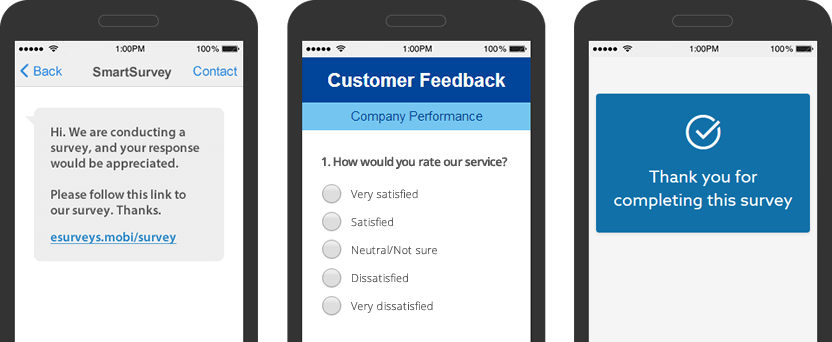
When it comes to asking questions to your customers you may want to ask them a lot of questions. They won’t complain of course they just won’t do your survey, and you lose out on valuable data. They have the power to just walk away, or close the browser.
Why run Customer surveys?
A customer survey is vital for any company to keep moving forward and growing. Customers are a vital part of any business model and not understanding or what and how they think and feel is not good business practice. Every customer survey has its own purpose and with it its own questions. Questions may vary from survey to survey, however there are key questions which are crucial to always ask. These questions will uncover very useful information that can help drive your business forward. The higher quality of questions you ask the better quality of answers you will get, plus keeping your survey short and sweet will ensure that you have a higher percentage of your audience giving you feedback.
Having great survey questions will not just give you better data, they also affect the company’s reputation. Your survey design and your survey questions will either enhance your brand or turn people away.
Top survey questions to ask
1) How likely is it that you would recommend our product / service to a friend or colleague? (Scale of 0-10)
This questions is based on the Net Promoter Score method and immediately gives you a snapshot into what your customers think about your brand. It measures your customer’s experience with you and your product or service. There is a lot of research relating to the fact if someone is going to promote your product or service then they are ready to get behind it. This is a great indication for your brand. Once you have this metric it is great practice to dig deeper to understand the reasoning behind your customer’s choice. Either by giving them a call or by simply asking follow up questions.
2) What is one thing we should never stop doing?
This question will open up your eyes to what your customers value most about your business. It provides great qualitative data to build on your quantitative data of website analytics, purchases etc. These answers are a great way to cross check what you feel your business is doing well compared to what your customers believe you are doing well.
3) What problem does our product /service solve for you?
Are you solving the problems for your customers that you thought you would? This question will help give more input for your marketing team to refine the marketing messages for your various activities.
4) How did you first hear about us?
You can tell a lot from your website analytics about where your customers are coming from. Finding out where they first heard about you though is something that it cannot tell you. This information can shed light on how your new customers find out about you and from which channel. Be it a recommendation, an ad, social media post or something else entirely. With this information you can see which channels are working more than others to drive your brand.
5) Tomorrow if product “x” no longer exists how would that impact you?
Where ‘x’ product is the product or service you would like to gain feedback from. This gives you a great insight into how much your customer relies on your product or service. Ideally you want to have at least 50% of your customer base who cannot do without your product. If you are not up to this level then this is a great indication for you to look at your customer experience. What are you offering that they cannot get anywhere else. What are you doing to keep them invested and coming back to you? How can you drive this forward more?
It is overwhelming for the survey respondent when faced with all these questions at once. It is always best to ask one question at a time, you will get more valid results and your customer will be more likely to complete the survey. Win-win!
